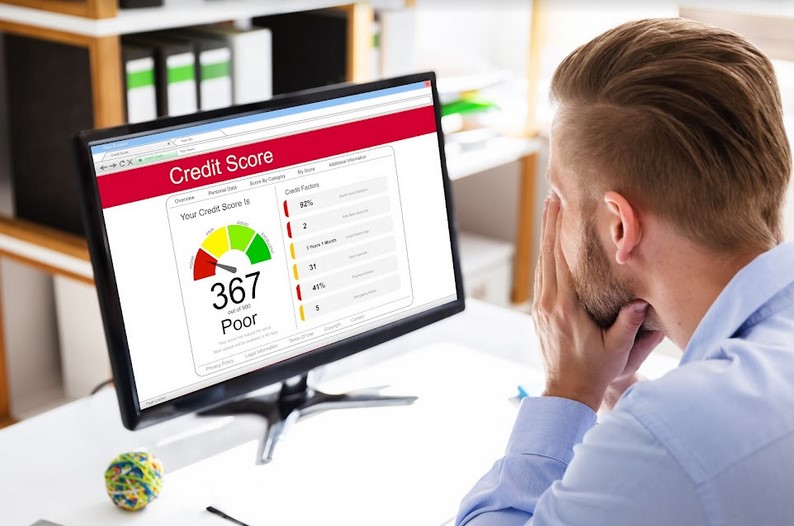A good credit score provides you access to an array of benefits, from favorable loan options to getting the best insurance rates and better negotiating power. Typically, this requires a FICO score of approximately 670 or a VantageScore of at least 700.
On the other hand, messing your credit report can have many negative repercussions. If you have unhealthy borrowing habits, this can make the problem worse. Specifically, a bad credit score is somewhere in the FICO range of 300 to 579. If calculated using the VantageScore, this ranges from 300 to 600.
Disadvantages Of Low Credit Score
The timeliness of your payments and the sum of debt you currently have can majorly influence your credit score. Improving your credit score can be possible only when you understand how a bad one can affect your daily life. To show you, below are a few consequences of having bad credit.
-
Small Chances Of Getting A Loan
If you have bad credit and you encounter a financial emergency, you may be compelled to borrow money to address the problem. However, banks and similar agencies have rigorous standards for identifying who qualifies for lending. They have to initially investigate how likely you’re going to pay them back.
One of their practices is to acquire your credit report from FICO and VantageScore providers. This information encompasses loan and payment histories, as well as current bill balances. All these can help banks and lenders evaluate whether or not you’d most likely be able to pay them back on or before due dates.
This might not come as a surprise, but it’s unfortunate how you can have less to zero loaning options when you have bad credit. A low score negatively influences your creditworthiness, making it difficult to borrow from banks and lending agencies. If you ever qualify, you might have to suffer from higher interest rates to make up for your risk.
Fortunately, there are still a few bad credit online loans that’d allow you to gain better chances of getting approved. However, make sure to choose one that you can count on to avoid scams and further monetary problems.

-
Low Career Prospects
Apart from the fact it influences your creditworthiness, a low credit score can limit your opportunity to earn more or get your dream job. Companies don’t necessarily have to check your credit report. However, if you’re planning to apply for a managerial role that involves making financial decisions or looking to fill in a vacant position in the finance department, they’d have to ask for a list of references and run a background check. Aside from evaluating your professional credentials, this assessment includes looking into your credit report and money habits.
Moreover, examining your credit report would allow employers to have a glimpse of who you are and foresee certain things that could affect your job performance in the long term. Potentially, the negative items in your credit information might put stress and extra burden on you.
If you aren’t able to manage this well, this might disrupt your focus at work, zap out your energy, and make you frustrated. This might seem unfair, but employers have a point. For this reason, recruiters would less likely consider and hire someone they think wouldn’t be able to meet the responsibilities associated with the job. They might look at it as only a waste of time and resources.
-
High Insurance Premiums
When applying for insurance, companies have to assess your risk by factoring in your lifestyle habits and financial stand. This is essential as there’s believed to be a correlation between bad credit and the likelihood of drivers to depend on their auto insurance carrier for compensation.
This might be true. Someone who’s suffering from financial burdens would most likely run to their auto insurance agency and file a claim to cover the bills. Likewise, it might be challenging to obtain the lowest insurance rates if your credit report shows high debt amounts and surging bills.
On the other hand, if you’re already under a certain insurance carrier, a dip in your credit score would automatically raise your insurance premium. This increased rate serves as a buffer for your risks.
But what’s worse is some insurance agencies may have to withdraw your policy from the program. This is particularly true if your credit score seems hopeless. Unfortunately, a lot of people don’t see this coming until they look into their credit reports.
Final Thoughts
Bad credit could affect you in many ways. From less loaning options to getting discounted from job offers and surging premium rates, these inconveniences can become cumbersome. If you haven’t checked your credit report for a while, it’s time to look into it and know where you currently stand. From there, you can create resolutions to recover and bounce back from this setback.
Related Posts












